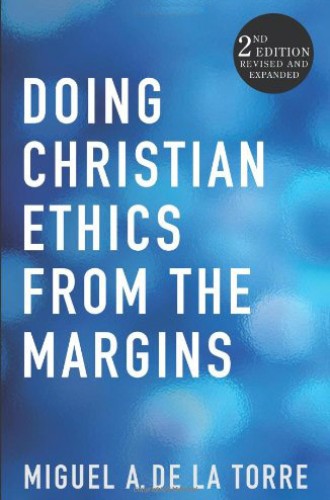Doing Christian Ethics from the Margins, by Miguel A. De La Torre
At such ideologically and politically charged times as these it is almost impossible to discern what a life of Christian faithfulness looks like. Christians who are claimed by the gospel and grounded in Christ fall into promoting diametrically opposing perspectives on issues such as poverty, immigration, the use of force, and ethics at the end of life. Those of us searching for common ground have a good resource in Miguel De La Torre’s Doing Christian Ethics from the Margins. The author’s premise is that the biblical message of a life of faithfulness and salvation through Christ points toward the centrality of the poor and marginalized for a Christian understanding of social transformation and liberation. For De La Torre, “Christian liberative ethics becomes the process by which the mechanisms that dehumanize life, as well as cause death, are dismantled.”
Using the hermeneutical circle of observation, reflection, prayer, and case study, De La Torre invites us to look at Christian living as the task of continuing Jesus’ liberating mission for all people, the oppressed and the oppressor alike. Two specific acts define this activity. First we must choose a location on the margins from which to engage human action in all its spheres (political, economic, cultural, and social; local, national, and global). This will lead us to view the suffering and oppression of people on the margins—as well as the concomitant dehumanization of the dominant culture—as something that is against God and in need of liberation. Second, we must uncover and dismantle the systems of domination and exploitation that contribute greatly to the suffering of groups such as migrants, African Americans, American Indians, and LGBTQ people.
More specifically, De La Torre invites us to uncover the ways in which oppression, racism, immigration laws, and fiscal abuse such as tax evasion and toxic mortgages are implemented to normalize and morally validate the dominant group’s interests and life situations over against those of the marginalized. Because of these systems the lives of the powerful and dominant come to be seen as morally valuable and normative, while the poor are seen as immoral. De La Torre writes:






